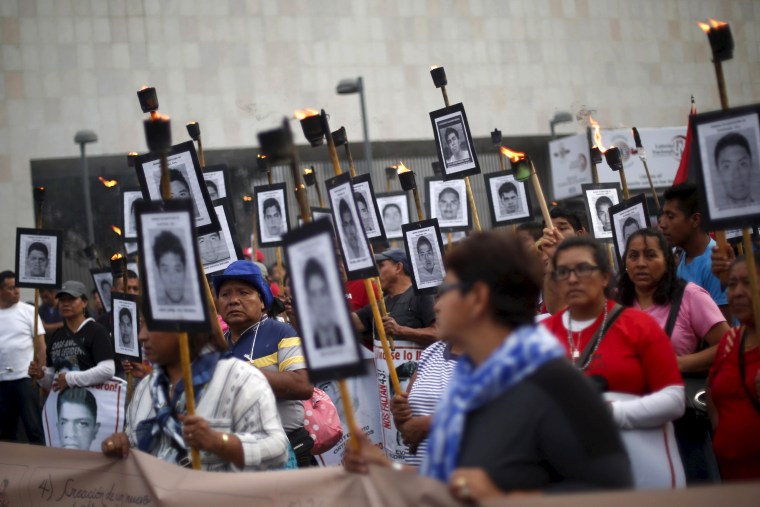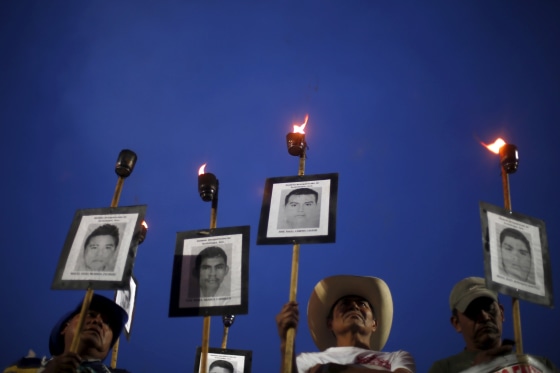While hundreds gathered to protest how the government handled the case of the missing 43 students from Mexico, a U.N. human rights office said Tuesday that it is troubled by complaints of obstacles to the investigation into the disappearance.
Rupert Colville, spokesman for the U.N. Office of the High Commissioner for Human Rights, said in a statement that the office is "concerned about the many challenges and obstacles reported by the experts," including the ability to examine other lines of investigation such the possible roles of the military and other officials in the case.
He called on the Mexican government to "take into serious consideration" the recommendations of the group of experts from the Inter-American Commission on Human Rights.
The group's report from Sunday criticized the government's investigation of the 2014 disappearances. It said suspects were apparently tortured and key pieces of evidence were not investigated or handled properly.

In a partial study of detainee records, the experts found there was evidence that all 17 detainees included in the study sample had been tortured. On Tuesday, Mexico's governmental National Human Rights Commission said it was investigating 47 complaints from detainees that they were tortured. Four others complained of mistreatment and 11 cited illegal arrest.
RELATED: In Mexico, Grieving Parents Call for End to Drug Wars, Legalization
Mexico's deputy attorney general for human rights, Eber Betanzos, said Tuesday that his office had received a total of 32 torture complaints, and that a total of nine investigations had been opened into the torture allegations. The numbers vary because of who the complaints were filed with, and how much proof was presented.
Government investigators have said the students were taken by local police in the city of Iguala, in the southern state of Guerrero, and handed over to drug gang members who killed them and burned the bodies at a trash dump.
The group of experts, known by the acronym IGIE, and a separate body made up of Argentine investigators say there is no evidence at the dump of a fire large enough to incinerate that many corpses.
Mexican President Enrique Pena Nieto said Sunday via Twitter that the federal attorney general's office would "analyze the whole report, to aid in its investigations."
Colville called the group's work "invaluable" and urged the government to explore new lines of investigation.
